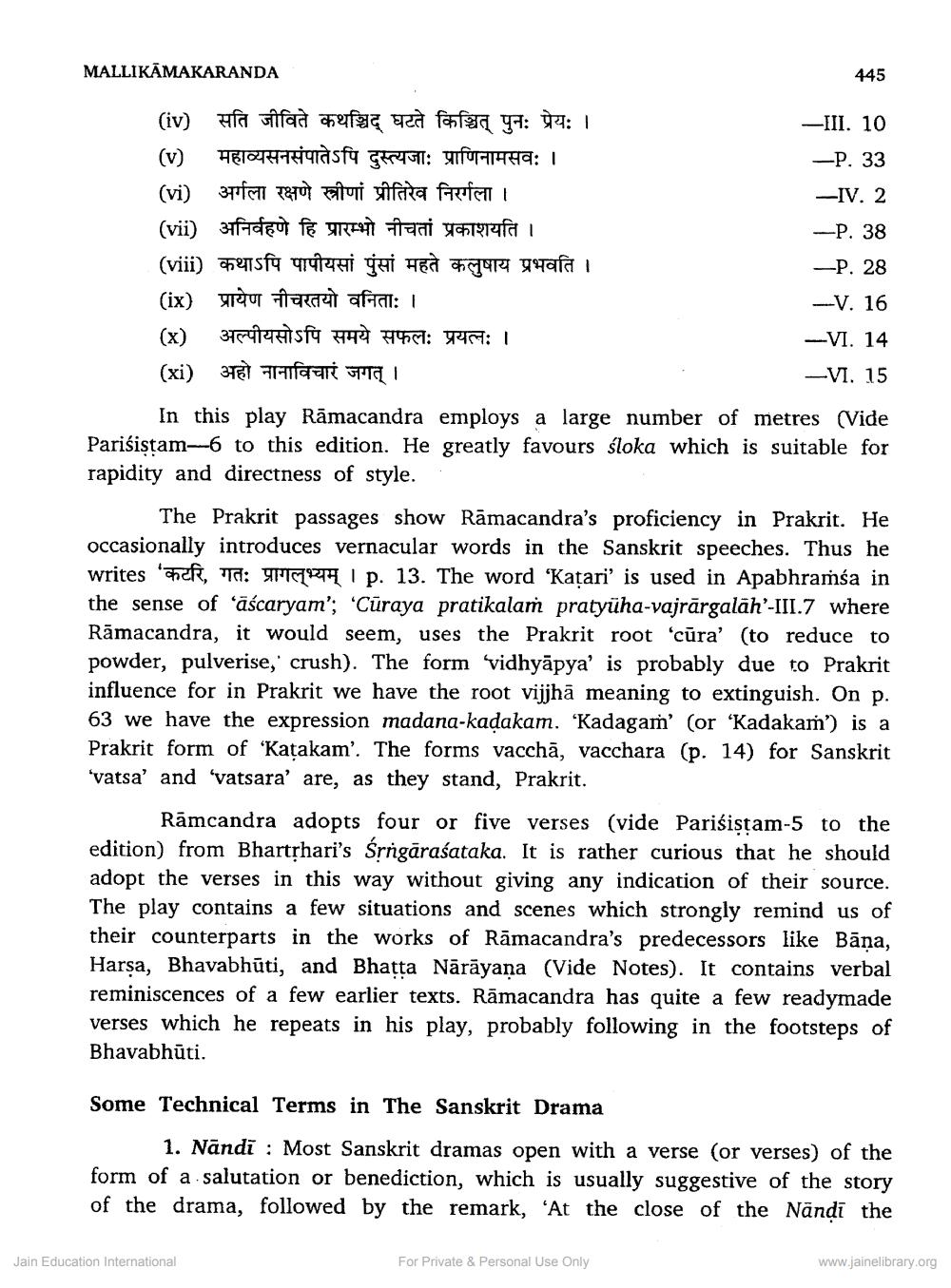________________ MALLIKAMAKARANDA 445 --P. 38 (iv) Alfa Hifad fefac sea forfeta 47: #9: 1 --III. 10 (v) lap a sta gtry: fot1489: --P. 33 (vi) 3Toft Hot Hivi nifata faci --IV. 2 (vii) 311-EU TE ARE977 metai y rafat i (viii) fu riteni ghi Hea olur yaft i --P. 28 (ix) RIO Takain aftal: 1 -V. 16 (x) Beatahtsf9 747 71941: 47: I -VI. 14 (xi) ZTET Mar Jai -VI. 15 In this play Ramacandra employs a large number of metres (Vide Parisistam-6 to this edition. He greatly favours sloka which is suitable for rapidity and directness of style. The Prakrit passages show Ramacandra's proficiency in Prakrit. He occasionally introduces vernacular words in the Sanskrit speeches. Thus he writes arief, Ta: 1992741 p. 13. The word 'Katari' is used in Apabhramsa in the sense of 'ascaryam'; 'Curaya pratikalam pratyuha-vajrargalah'-III.7 where Ramacandra, it would seem, uses the Prakrit root 'cura' (to reduce to powder, pulverise, crush). The form vidhyapya' is probably due to Prakrit influence for in Prakrit we have the root vijjha meaning to extinguish. On p. 63 we have the expression madana-kadakam. Kadagam' (or 'Kadakam') is a Prakrit form of 'Katakam'. The forms vaccha, vacchara (p. 14) for Sanskrit vatsa' and 'vatsara' are, as they stand, Prakrit. Ramcandra adopts four or five verses (vide Parisistam-5 to the edition) from Bhartphari's Srngarasataka. It is rather curious that he should adopt the verses in this way without giving any indication of their source. The play contains a few situations and scenes which strongly remind us of their counterparts in the works of Ramacandra's predecessors like Bana, Harsa, Bhavabhuti, and Bhatta Narayana (Vide Notes). It contains verbal reminiscences of a few earlier texts. Ramacandra has quite a few readymade verses which he repeats in his play, probably following in the footsteps of Bhavabhuti. Some Technical Terms in the Sanskrit Drama 1. Nandi : Most Sanskrit dramas open with a verse (or verses) of the form of a salutation or benediction, which is usually suggestive of the story of the drama, followed by the remark, 'At the close of the Nandi the Jain Education International For Private & Personal Use Only www.jainelibrary.org




